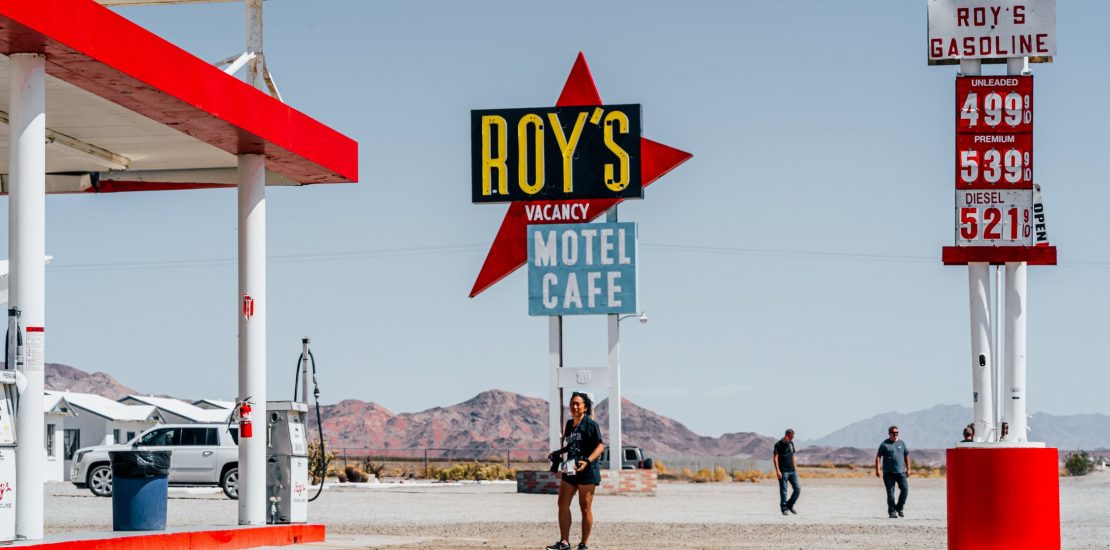Yep, we have plenty to worry about as we grind through another seemingly endless winter on the two-year anniversary of the pandemic (2/22/22). Russia has invaded Ukraine. The first of many interest rate hikes seems imminent. Tax rates are likely going up. COVID remains omnipresent. The long-running bull market is taking a breather to massage out some leg cramps as it officially enters “correction” territory.
At times like my dad would say: “Things are never as good or as bad as they seem.” He had a very high stress job which often involved life-and-death situations. But he kept things even keel and rarely brought his worries home with him.
His point was this: Whenever you’re on a roll — whether in business, sports, investing, gambling or even your romantic life — there are “cracks in the foundation” you’re not seeing because you’re caught up in the euphoria of your winning streak. And when it seems like you can’t get a break, no matter which direction you turn, there are actually good things happening all around you, but you’re not seeing them as you wallow is pessimism or self-pity.
Lessons from the Super Bowl
Case in point: At least two recent Super Bowl winners (2017 Philadelphia Eagles and 2015 Denver Broncos) have been in painful rebuild mode ever since they hoisted the Lombardi Trophy. Did they just get cocky or lazy after becoming world champs? No. They were simply a team of over-achievers that came together for one magical season despite all the aging veterans hobbling through in the final years of their contracts. They defied the odds with a roster held together with duct tape and safety pins. It makes for great stories the media and call-in-shows, but doesn’t set the foundation for a dynasty.
Momentum myopia works the same way when you’re on the schneid. Take the markets. While the S&P 500 officially entered “correction” territory today, did you know the index is still up more than 98% from where it was at this time five years ago? That’s better than a 14% annual rate of return!
Take inflation. The Labor Department reported earlier this month that the consumer-price index (CPI) in January reached its highest level since February 1982, when compared with the same month a year ago. As The Wall Street Journal reported, “that put inflation above December’s 7% annual rate and well above the 1.8% annual rate for inflation in 2019 ahead of the pandemic.”
Not great news, but let’s remember we’re talking about an arbitrary 12-month period today (Jan 2021 – Jan 2022) and comparing it to an arbitrary 12-month period 40 years ago (Jan 1981 – Jan 1982). If you widen the parameters of your comparison, you’ll see the peaks and valleys are not nearly as steep.
While we’re seeing jaw-dropping year-over-year price increases for things like gasoline (+49.6%), used cars & trucks (+37.3%) and energy +29.3%), let’s remember we’re coming off the extraordinarily low pandemic era prices when nobody went anywhere or did much of anything.
Let’s go back to 2019, a full year before the pandemic. According to the U.S. Bureau of Labor Statistics, the CPI stood at 255.7. Today it stands at 281.9, including a substantial jump last month. If my math is correct, the CPI has risen just 10% over the tumultuous last three years, a compound annual rate of about 3.3%. Not much higher than the historical rate of inflation in the U.S.
Still not convinced? Take a look at gas prices, which everyone can relate to. Some of my earliest childhood memories are of around-the-block gas lines during the Arab oil embargo of the early 1980s. You may be old enough to remember it was the first time that gas prices first hit an un-American $1 a gallon (gasp!)
Today the price of gas has more than tripled to $3.44 a gallon according to U.S. Energy Information Administration stats. That seems pretty steep, but if you do the math, you’ll see it’s a compound annual growth rate of less than 3%. There’s that 3% number again — the long-term historical rate of inflation. When it comes to gasoline, we just got spoiled by $2.10 a gallon during the depths of the pandemic (November 2022). Same goes for interest rates. Even if the Fed invokes four separate rates hikes in 2022, each hike is likely to be no more than 25 basis points. So if rates are a full 1% higher than they are today, the will still be extremely low by historical standards.
It may get tougher for those with huge credit card debt or variable rate mortgages they never should have qualified for in the first place, but I don’t think that’s the case for most of your clients.
I feel your pain
I know rent and housing costs keep spiraling upward. I just got whacked with a 25% increase for my office space. I was pissed when I first saw the new lease – especially with so much commercial space available. But my wife reminded how much nicer the building is than when I moved in a dozen years ago. And now the lease includes a fully renovated office, VOIP phone service, high speed internet, unlimited coffee and access to a stunning roof patio and a modern 24/7 gym right in the building. So even though I’m paying 70% more than I did a dozen years ago. Do the math: it’s an average annual increase of only 4.1% for much nicer digs. Don’t tell the building owner, but that makes writing the monthly rent check a little less painful.
Bottom line: let’s take the long-view here and not get spooked by the doom-and-gloom headlines.
Conclusion
Writer and humorist, Sam Ewing, once said: “Inflation is when you pay $15 for the $10 haircut you used to get for $5 when you had hair.” Perhaps, but eventually you get to an age in which you don’t need as many haircuts as you used to and or you stop caring what you look like on Zoom calls. So, in the long run everything evens out.
Don’t agree? Tell me why.
#inflation, #marketcorrection, #volatility











Great perspective, Thanks for the reminder to focus on the long run and the brighter side of reality.
Insightful as always, Hank